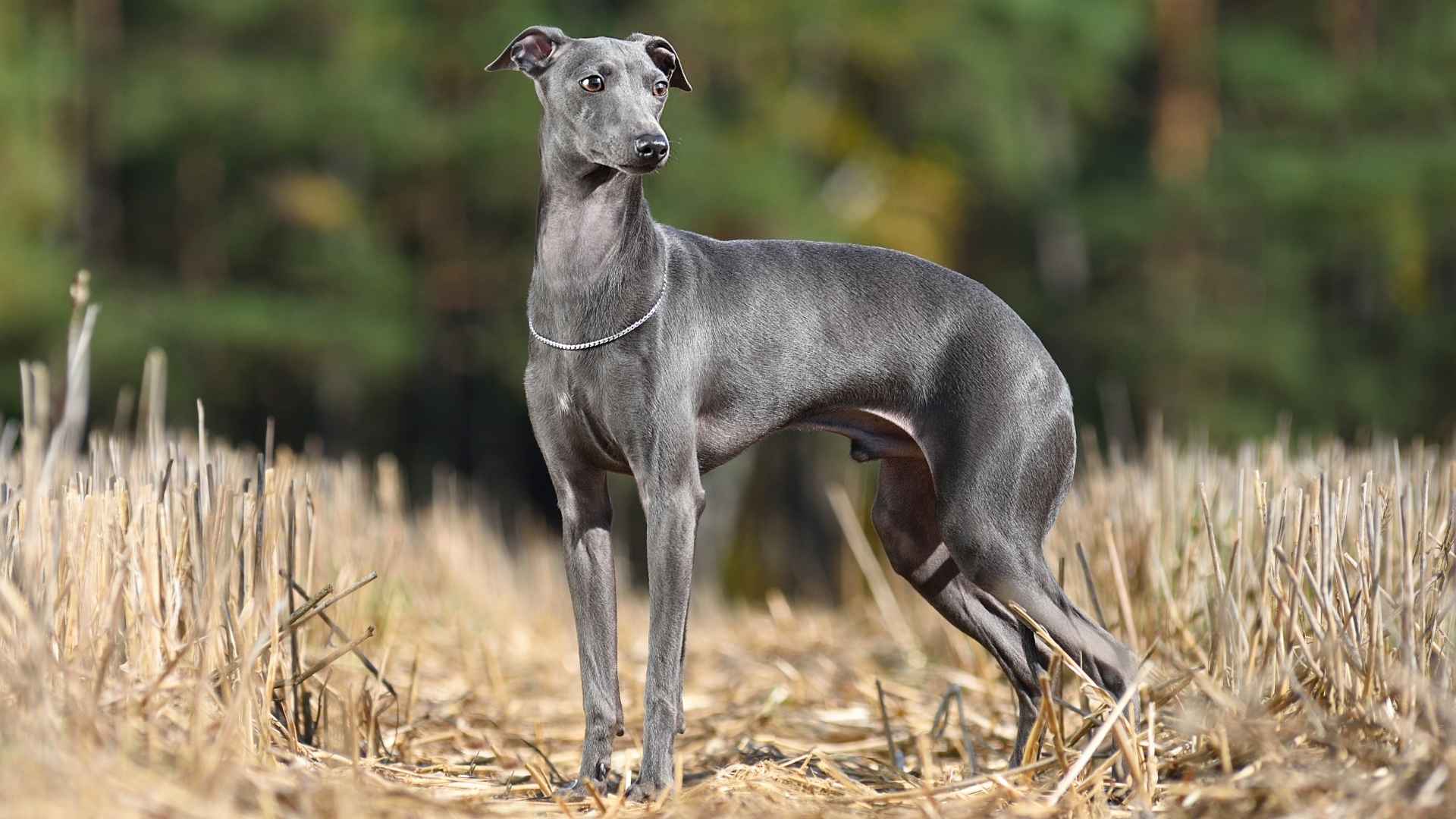When looking for a calm, reliable canine companion, temperament matters just as much as appearance, and black-coated dogs often offer both. While black dogs are sometimes overlooked in shelters, many breeds with dark coats are known for their low-anxiety, composed nature.
These dogs are steady, emotionally balanced, and thrive in peaceful households. Whether you live alone, have a busy family, or struggle with stress yourself, a calm dog can make daily life feel more manageable.
Low-anxiety breeds are typically less reactive, quieter, and easier to train. They’re not prone to excessive barking or nervous energy, making them ideal for anyone seeking emotional support or quiet companionship.
In this article, we highlight seven black dog breeds that are naturally even-tempered and easy to live with. Each one brings a sense of ease to the home, perfect for those who want a loyal companion without the added stress of unpredictable behavior.
Black Dog Breeds with Low Anxiety
1. Basenji
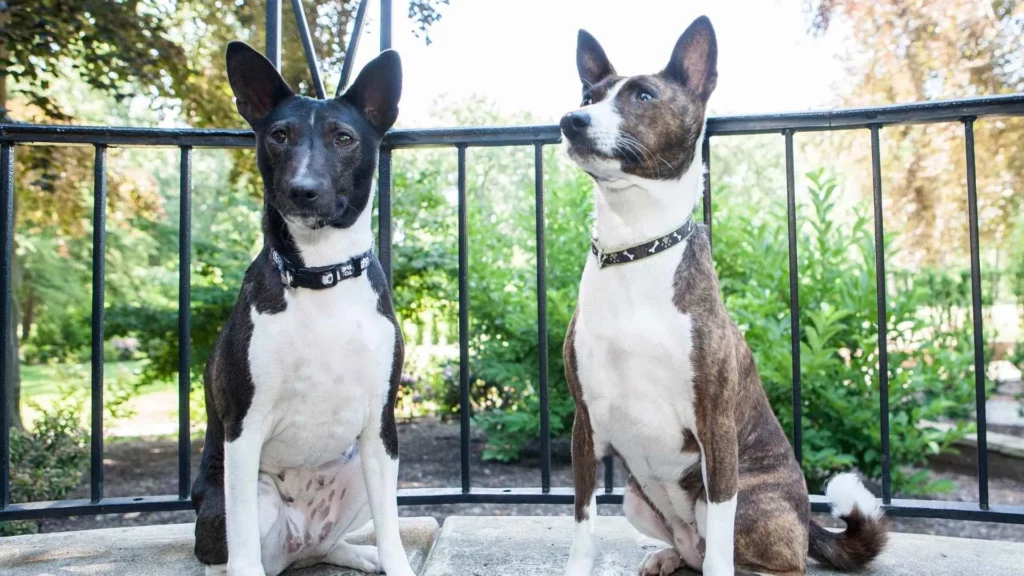
Key Traits:
Size: Small (16–34 lb)
Temperament: Independent, intelligent, curious
Lifespan: 12–14 years
The Basenji is famous for its unique yodel-like vocalization, often called a “barroo,” instead of a traditional bark. This African breed carries an elegant, athletic build with a tightly curled tail and wrinkled forehead that gives it an alert expression.
Basenjis are incredibly intelligent but stubborn, which can make training a challenge unless approached with patience and positive reinforcement. Their independent nature means they’re content to entertain themselves, helping them handle alone time well.
This breed’s short, fine coat is easy to maintain, and they’re known for grooming themselves much like cats do. Basenjis have high energy and need daily exercise to stay happy, thriving on playtime or agility activities in a securely fenced area.
While they form strong bonds with their humans, Basenjis can be wary of strangers and don’t crave constant attention. Their curious minds mean they can get into mischief if left bored, so mental stimulation is important.
Thanks to their history as African hunting dogs, Basenjis are alert and quick, but their calm indoor demeanor makes them surprisingly low-anxiety companions for owners who understand their unique personality.
2. Greyhound
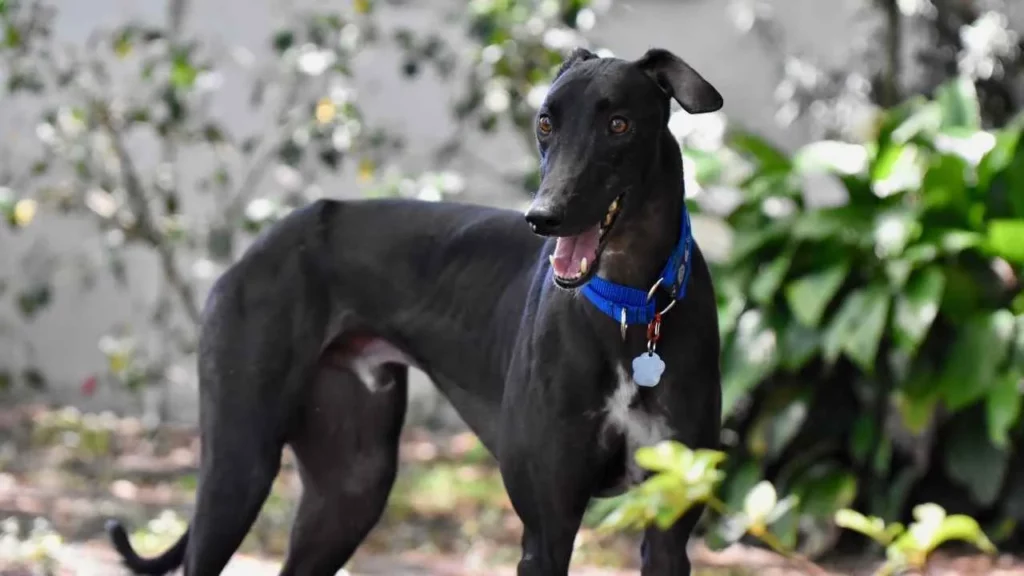
Key Traits:
Size: Large (60–70+ lb)
Temperament: Gentle, calm, affectionate
Lifespan: 10–14 years
According to the AKC, Greyhounds are renowned for their incredible speed and slender, aerodynamic bodies built for chasing prey. However, they’re also some of the most laid-back couch potatoes in the dog world, content to lounge for hours when indoors.
This breed has a short, smooth coat that’s easy to groom with just a weekly wipe-down and regular nail trims. Their sensitive skin requires gentle care, especially around the ears and teeth, to keep them comfortable.
Despite their athletic heritage, Greyhounds are surprisingly mellow and gentle, forming close bonds with their owners but often staying reserved with strangers. They tolerate alone time well, especially if given a soft bed and a calm environment.
Exercise is essential but manageable: short bursts of fast running in a secure area or daily walks keep them fit without wearing them out. Greyhounds tend to get bored with repetitive training and respond best to patient, positive methods.
Their unique blend of grace, speed, and calm personality makes them excellent pets for families seeking a low-anxiety dog that can adapt to both active and relaxed lifestyles.
3. Miniature Schnauzer
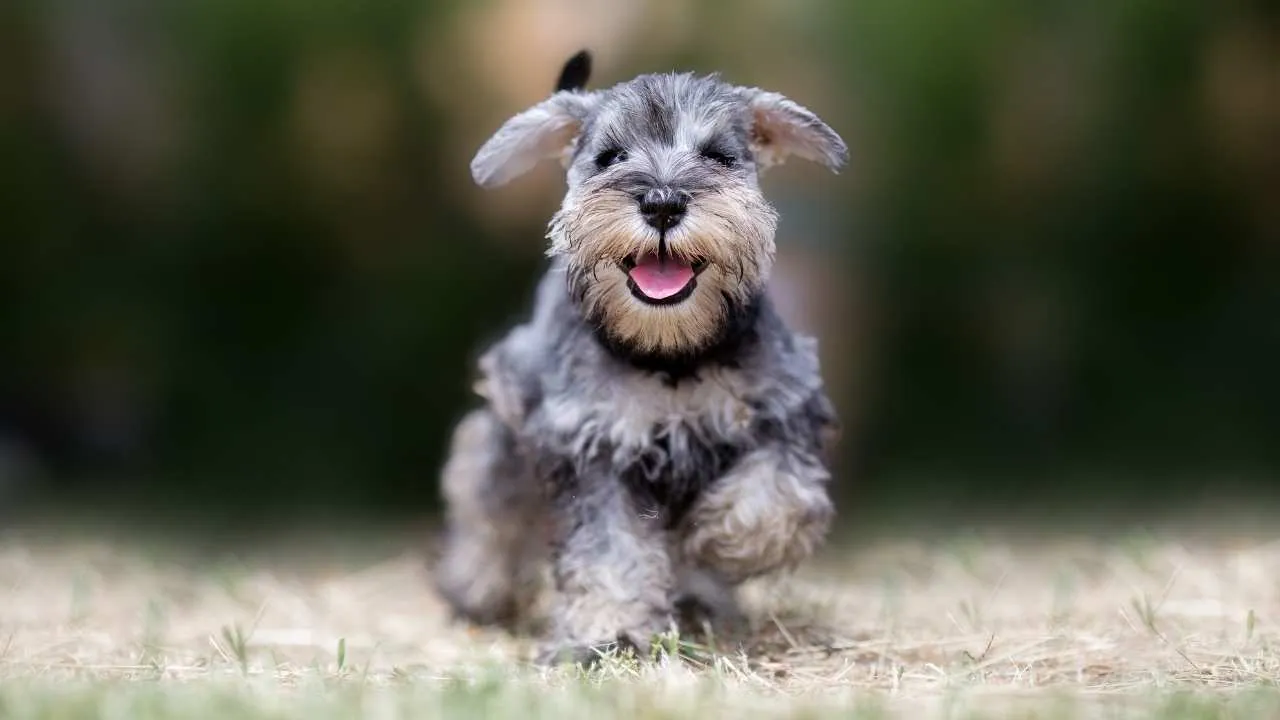
Key Traits:
Size: Small (11–20 lb)
Temperament: Friendly, intelligent, alert
Lifespan: 12–14 years
Miniature Schnauzers are spirited little dogs known for their distinctive bearded faces and bushy eyebrows. Their lively nature pairs with a sharp intelligence, making them quick learners and eager participants in family life.
Hill’s Pet states that this breed is highly adaptable, thriving in both city apartments and country homes as long as they receive enough mental and physical activity. Their double coat requires regular grooming to keep it looking sharp and prevent matting.
Though energetic, Miniature Schnauzers are also quite independent and can handle being alone for several hours without distress. Their alertness means they’re often good watchdogs, barking to alert their family but not prone to excessive noise.
Social and affectionate, they enjoy interaction with people and other pets but are not overly clingy. This balance helps reduce separation anxiety and allows them to entertain themselves when needed.
With their friendly temperament and manageable size, Miniature Schnauzers make excellent companions for owners looking for a confident yet low-stress dog.
4. Newfoundland
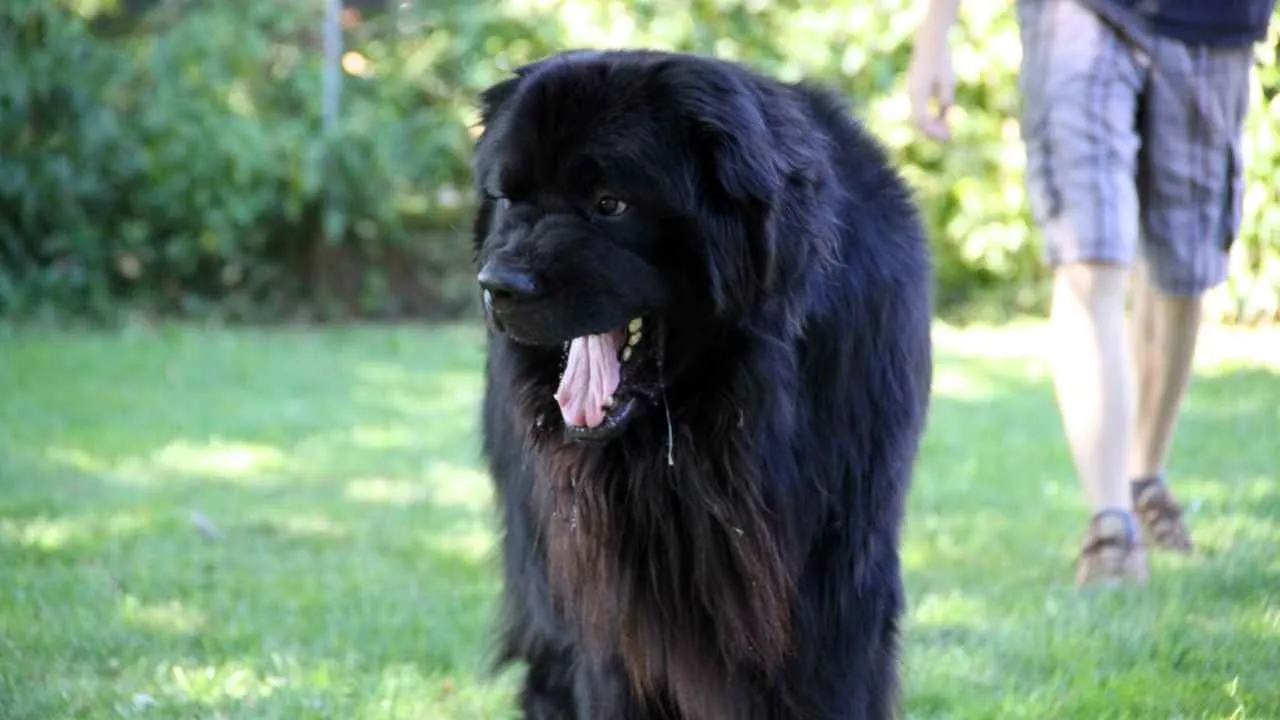
Key Traits:
Size: Giant (100–150+ lb)
Temperament: Gentle, patient, loyal
Lifespan: 8–10 years
Newfoundlands are gentle giants known for their calm, patient demeanor and natural swimming ability. Their thick, water-resistant coat needs regular brushing, especially during shedding seasons, to keep it healthy.
This breed is famous for its sweet disposition and strong bonds with family members, often showing incredible loyalty without being overly needy. They’re independent enough to handle short periods alone without distress.
Despite their large size, Newfoundlands are calm indoors and enjoy lounging by their owner’s side, which suits families seeking a laid-back dog with low separation anxiety.
As per PetMD, daily exercise is necessary to maintain their health, but doesn’t need to be strenuous; leisurely walks and playtime suffice. They thrive in homes where they have space to stretch out and stay cool.
Newfoundlands’ patient nature and gentle temperament make them excellent therapy dogs and trustworthy companions, especially for households wanting a dependable, calm canine.
5. Lhasa Apso
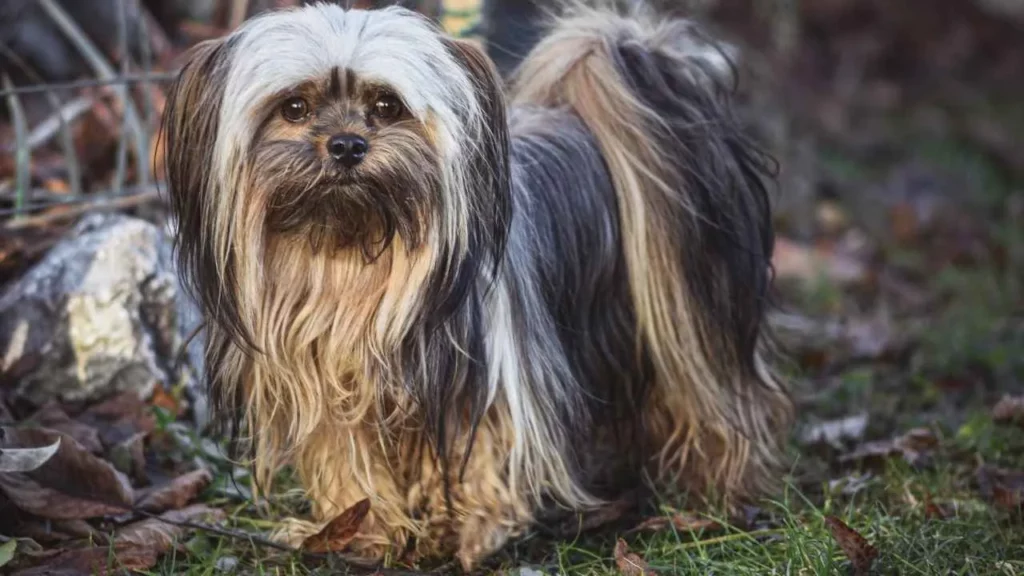
Key Traits:
Size: Small (12–18 lb)
Temperament: Independent, confident, alert
Lifespan: 12–15 years
The Lhasa Apso is a small but sturdy breed, originally bred as a sentinel dog in Tibetan monasteries. Their long, luxurious coat requires daily grooming to prevent tangles and maintain its characteristic elegance.
Known for their independent spirit, Lhasas are confident dogs that don’t suffer from separation anxiety easily. They can spend time alone calmly, but also enjoy a strong connection with their owners.
This breed has a keen sense of alertness and will bark to notify their family of any unusual activity, making them excellent watchdogs despite their size.
Lhasas are intelligent and can be a bit stubborn during training, so consistent, patient techniques work best. Their playful side emerges in family settings, where they love interactive toys and gentle games.
With a balance of independence and affection, the Lhasa Apso suits owners looking for a low-anxiety dog that can comfortably spend time alone while still providing loyal companionship.
6. French Bulldog
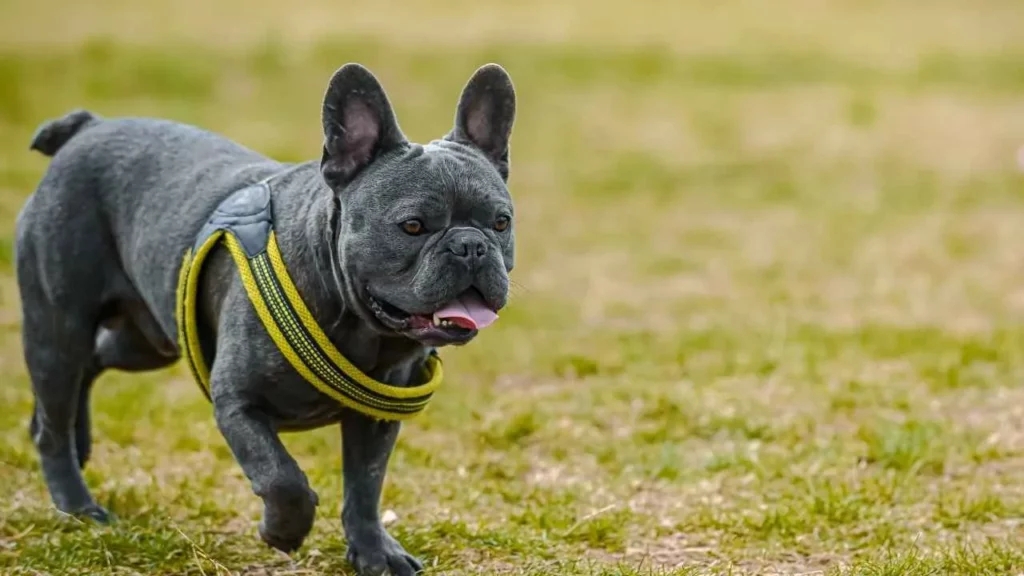
Key Traits:
Size: Small (16–28 lb)
Temperament: Playful, adaptable, affectionate
Lifespan: 10–12 years
French Bulldogs are instantly recognizable with their bat-like ears and muscular, compact bodies. Their short coat is easy to care for, but they require careful attention in hot weather due to their brachycephalic (short-nosed) anatomy.
Despite their “Velcro dog” reputation for following owners closely, Frenchies can entertain themselves and handle several hours alone without major stress. Their adaptable nature suits both apartment living and larger homes.
This breed is playful and affectionate, enjoying interaction and cuddles but also content with quiet downtime. Their sociable temperament means they generally get along well with children and other pets.
French Bulldogs need moderate exercise, short walks, and indoor play, and are prone to weight gain if overfed or under-exercised. Their easy-going attitude helps reduce separation anxiety when they have toys or companionship.
Their combination of charm, low-maintenance grooming, and balanced independence makes French Bulldogs popular pets for those wanting a lovable but low-stress companion.
7. Pug

Key Traits:
Size: Small (14–18 lb)
Temperament: Affectionate, playful, adaptable
Lifespan: 12–15 years
Pugs have a distinct wrinkled face and curly tail that add to their irresistibly cute appearance. Their short coat is easy to maintain, but skin folds need regular wiping to prevent infection.
These dogs have a playful yet calm personality, making them great companions for families and individuals alike. Pugs enjoy attention but also tolerate being alone for several hours without developing severe anxiety.
Though they love human company, pugs often enjoy “me time,” allowing them to adapt well to varied schedules and living environments, including apartments.
Exercise needs are modest; short daily walks and some indoor play keep pugs healthy and happy. They’re known for their comical antics and friendly demeanor, which helps alleviate any mild separation worries.
With their affectionate nature and adaptable temperament, pugs are excellent choices for owners who want an affectionate dog with a calm and easygoing attitude toward alone time.
Conclusion
When choosing the right dog for your home, factors like grooming needs, energy level, and temperament play a huge role in reducing anxiety for both pet parents and their companions. Medium-sized breeds with medium-length coats often strike a great balance between manageable care and robust health, while curly coats may require extra grooming attention.
Whether you’re drawn to athletic dogs with a lively personality or other more laid-back large breeds like the Golden Retriever or Great Dane, understanding each dog’s natural tendencies helps create a calm, happy environment.
Social animals with sweet natures and low tendencies toward separation anxiety thrive best with proper training and mental stimulation, sometimes supported by natural supplements or calming aids. Ultimately, knowing the specific breed’s health conditions and behavior patterns ensures you pick a companion dog who fits your lifestyle and supports your mental health.


